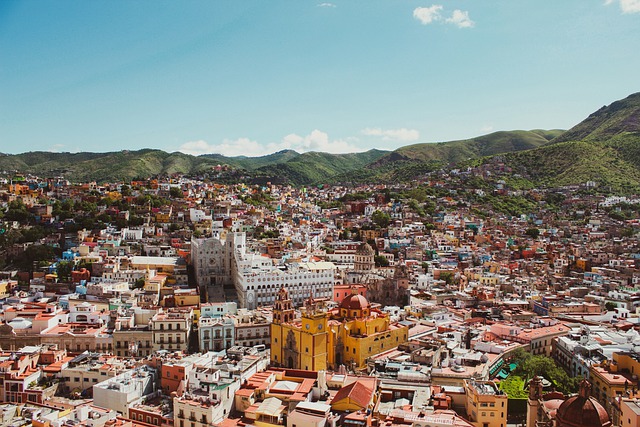Reproductive Health in Mexico: A Guide

Your reproductive health may not be something you tend to think about before travelling abroad, particularly if it’s only for a short period (excuse the pun). Maybe you think about your period, but probably not about what you’d do if you needed extra contraceptives – regular, long-term, or emergency. However, it’s worth understanding what you can and can’t get and roughly how much it will cost you. You never know when you might get caught short and be in need of some help when travelling in Mexico.
Reproductive Health in Mexico: A Guide
Monthly Necessities
Before I moved to Mexico, every woman I spoke to who’d been there told me to stock up on tampons. Depending on where you are in Mexico, this staple of most women’s monthly routine can be tricky to come by or just plain expensive. Whilst the pharmacies that stock tampons generally have all the standard brands, you’re looking at paying around 45 pesos per box of ten, about £2.50.
As for sanitary towels, these are much easier to get your hands on than tampons and come in various different brands and sizes – plus, they’re loads cheaper! In fact, I even found some better (read: non bulky) sanitary towel options when I was out there that I stocked up on and brought home with me.
If you’re concerned about where you’ll be able to buy any sanitary product while you’re out there – maybe you’ll be travelling a lot or working in a remote area – just invest in a sanitary cup before you leave. This is cheaper in the long run, easy to sanitise and convenient.
Contraceptives
Contraceptives should ideally be planned ahead for. If you’re taking the pill, perhaps speak to a doctor and get a yearly supply before you move abroad. That way you at least have some time to figure out how and where you can get your next batch from.
Having said that, I needed an emergency set of pills around eight months into my time abroad and I just bought them over the counter from a street-side pharmacist. This is not recommended though to be honest, because you should ideally be getting your blood pressure and general health checked before starting any new course of medication. Let’s just say I threw caution a little to the wind.
Generally, as far as contraceptives go, they’re not that tricky to get your hands on (whether you need the pill or even the injection) and can be prescribed by doctors if you make an appointment. You will have to pay for them though!
Emergency Contraceptives
Emergency contraceptives come in the form of either the copper IUD (known as the DIU in Mexico, which stands for dispositivo intrauterine) or the morning-after pill (also known as Plan B, but typically referred to in Mexico as la pastilla del día siguiente). For the former, you’ll have to get an appointment with a gynaecologist and this could take any number of days or weeks, depending where you are. Plus, you would again have to pay for the insertion, which can be quite uncomfortable as it is.
For the latter, you can get them fairly easily in pharmacies. However, it is worth noting that one of Mexico’s biggest chains, Farmacias Guadalajara, does not stock the morning-after pill, as they’re Catholic owned and don’t agree with their use. Having said that, when I tried to buy one there the staff were friendly and helpful and instead pointed me in the direction of another chemist that stocked them. Don’t assume that the views of the company are shared by all the staff. Typically, you’ll be looking to pay anywhere from 30-90 pesos for one pill, which is about £1.50-£4.00.
Abortion
Abortion is a somewhat touchier (to put it lightly) issue in Mexico and abortions have only been legally available in the capital, Mexico City, since 2007. Even then, only up to 12 weeks of gestation. As you can imagine, illegal abortion is dangerous but rife throughout the country, as families are burdened with more children than they can realistically afford.
In all the country’s 31 states, abortion is legal in cases of rape, but aside from this one blanket policy, the states all differ on when else abortions can be legally obtained. For example, highly conservative Guanajuato state will allow abortion only in cases of rape and will imprison women who have been deemed to have abortions illegally. On the other hand, Yucatán will take into account fetal deformities, the economic situation of the mother and potential risk to her health as factors which impact on whether or not an abortion should be permitted.
If you were to find yourself pregnant in Mexico and wanting an abortion, the procedure would have to be carried out in the capital and would cost anywhere between 1400 pesos and 2600 pesos. One of the country’s leading pro-choice organisations is GIRE (Grupo de Información en Reproducción Elegida), which would be an excellent resource if you found yourself in such a situation.
Photo by Pixabay.








